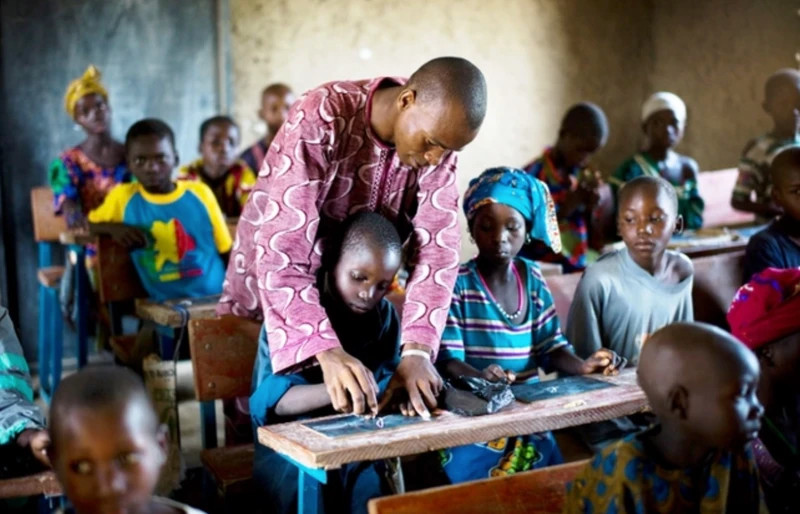Taking place in the Ethiopian capital, Addis Ababa, the AU Summit aimed to find solutions to the urgent security challenges facing member states and build a roadmap for education in the region.
The education sector was chosen as a focus in the AU 2024 agenda, showing that this is the right time to develop and implement policies to increase access to quality education systems for people in the area. This will help AU member states promote the realisation of the Continental Education Strategy for Africa, the education-related goals of AU’s 50-year Continental Development Agenda 2063, as well as the Sustainable Development Goal (SDG) of ensuring quality, open, equitable education and enhancing lifelong learning opportunities for all people.
Despite setting ambitious goals for the education system, the AU faces many obstacles. Save the Children said that while the AU has made significant efforts to ensure a safe educational environment, this result is being reversed. According to a report published by Save the Children, violent attacks on schools in Africa increased by 20% in 2023. More than 400 attacks across the region occurred in the past year, forcing many schools to close, with several teachers and students being injured and even killed.
According to Save the Children, Nigeria suffered the most attacks on schools in 2023, with 89 cases. Ibrahim Zanna Sunoma, a representative of Nigeria attending the AU Summit, said he witnessed firsthand the catastrophic destruction caused by the attacks, emphasising that this caused fear and robbed children of their basic right to study in a safe environment. These traumatic experiences are deep scars in the minds of not only Sunoma but also many other children in Africa.
Amid the challenges facing the education sector in Africa, delegates attending the AU Summit called on member countries to take concrete steps. At a meeting on the sidelines of the AU Summit, with the theme “Ensuring the right to equitable and inclusive quality education to break and prevent the cycles of violence in Africa”, the AU and partners provided a series of recommendations to raise awareness of the role of education in limiting the factors that lead to conflict and violence in the region. AU Commissioner for Political Affairs, Peace and Security, Bankole Adeoye, affirmed that education is the key enabler to break the cycle of violence and will help change the face of Africa. The AU Commissioner said that access to quality education helps people have more capacity to contribute to the community, participate in dialogues and find solutions to conflicts in the region.
According to AU Commission Chairperson Moussa Faki Mahamat, the AU’s choice of education as the focus of 2024 is aimed at a profound reform, with the expectation of training capable young people to contribute to the region's development process. Mahamat commented that the achievements of education will create significant impacts on many fields, such as security, agriculture, digitalisation, and women and girls empowerment. Reforming the education systems will also help reduce poverty and contribute to the prosperity of Africa.
As a powerful tool to foster development, peace and progress, education is the lighthouse that illuminates the path to a brighter future for Africa. However, this path is full of challenges, including ensuring school safety and reforming the education system, following the development trend of the 21st century. Therefore, the joint efforts of African countries, international partners, teachers and students themselves play an important role in helping regional education overcome these obstacles in the coming time.
















